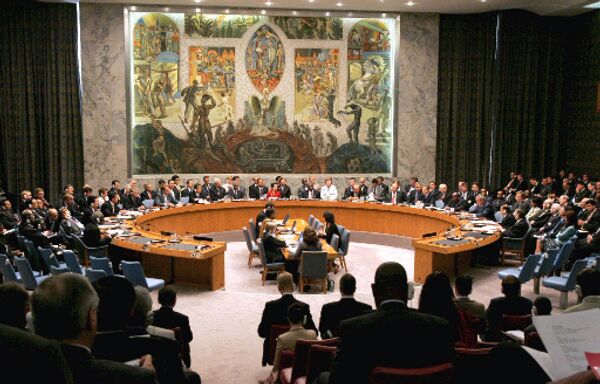MOSCOW, June 16 (RIA Novosti) - Georgia's destructive position was responsible for the withdrawal of the UN mission in the Georgian-Abkhaz conflict zone, the chairman of the Russian lower house's international committee said Tuesday.
"Russia regrets that the UN did not extend the mandate of its mission in the Caucasus, and Georgia's destructive position is the only thing to blame for it," Konstantin Kosachyov said.
The mission, formally known as the United Nations Observer Mission in Georgia (UNOMIG), legally stopped its work on Tuesday morning because the UN Security Council did not extend its mandate.
Ten countries, including the United States, Britain and France, voted for the draft resolution to extend the mission, four countries - China, Vietnam, Libya and Uganda - abstained, and veto-wielding Russia voted against.
The draft, co-authored by Austria, Croatia, Germany, France, Turkey, Britain and the United States, would have extended the mission until June 30, 2009.
Kosachyov said Russia's voting against the resolution was not connected with Russia's desire to block UN activity in Abkhazia.
"We welcomed the activity and believed it contributed to control of security in the region," Kosachyov said, adding however that the work of a UN mission "should not be turned into an attempt to fix one position in a disputed matter."
Russia's envoy to the UN, Vitaly Churkin, said after the vote that Russia was unable to agree to the draft because it was actually aimed at confirming Georgia's territorial integrity and denying Abkhazia's independence.
The Russian Foreign Ministry earlier criticized other members of the Security Council for their "politicized positions, which ignore the real interests of people in the Caucasus and jeopardize stability in the region," and urged its partners to review their stances.
The UN mission in the Georgian-Abkhaz conflict zone was deployed in 1993 to oversee a ceasefire following a post-Soviet conflict that resulted in Abkhazia gaining de facto independence.
Russia recognized Abkhazia and South Ossetia in August 2008 after its five-day war with Georgia over the latter, which was attacked by Tbilisi in an attempt to bring it back under central control. Most residents of both Abkhazia and South Ossetia had held Russian citizenship for several years.
Russia's decision was condemned by the United States and the EU. Nicaragua has so far been the only other country to recognize South Ossetia and Abkhazia.
The Russian Foreign Ministry said Tuesday that Russia was ready to strengthen cooperation with the European Union after the withdrawal of the UN mission from Abkhazia.
"We are ready to continue and strengthen interaction with the EU in this field, including joint work in structures to prevent incidents," the ministry said.


